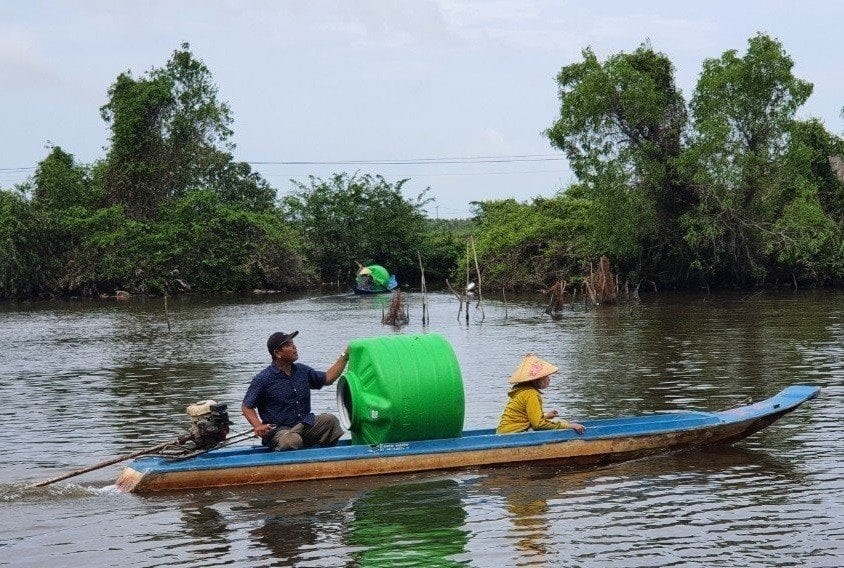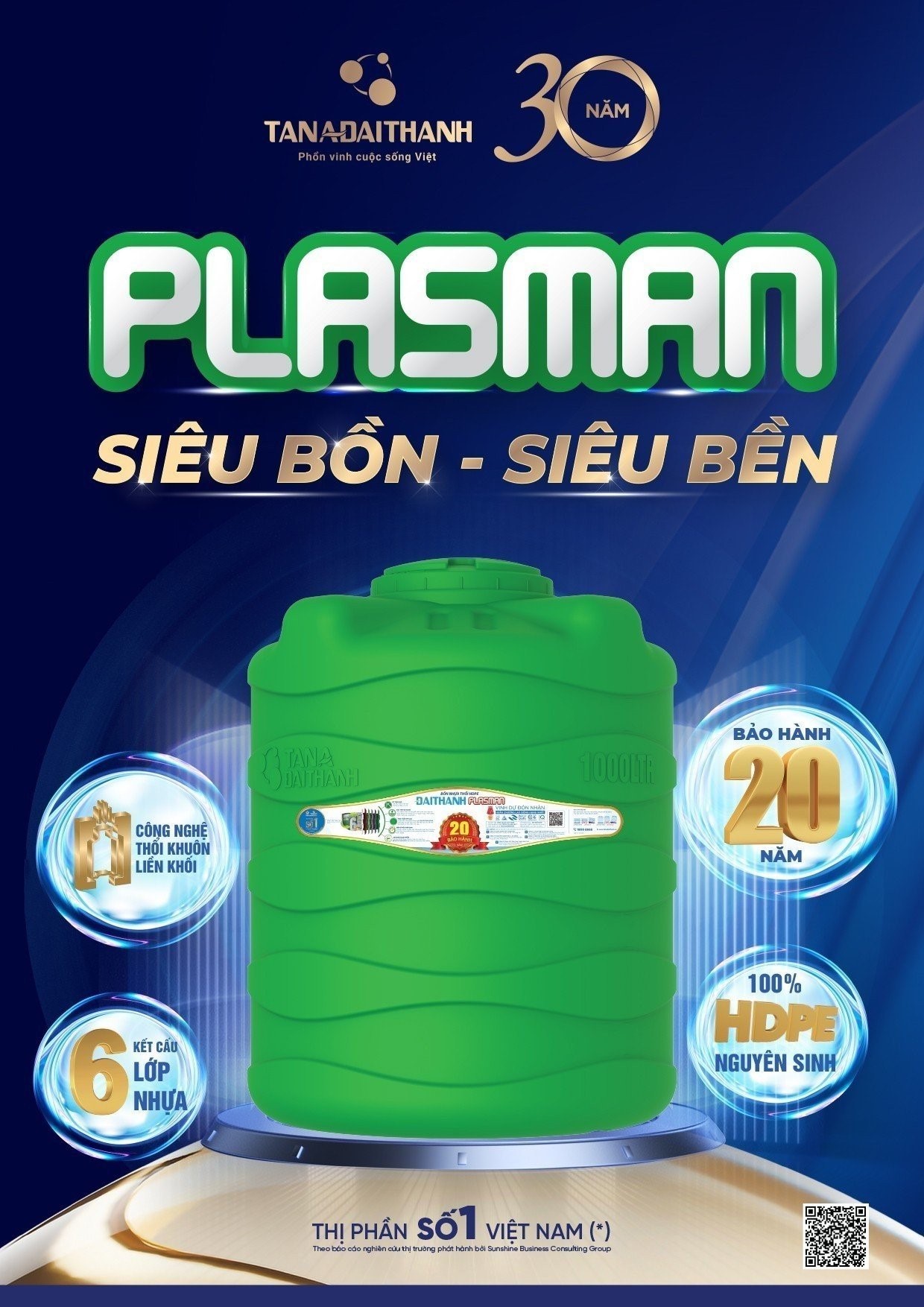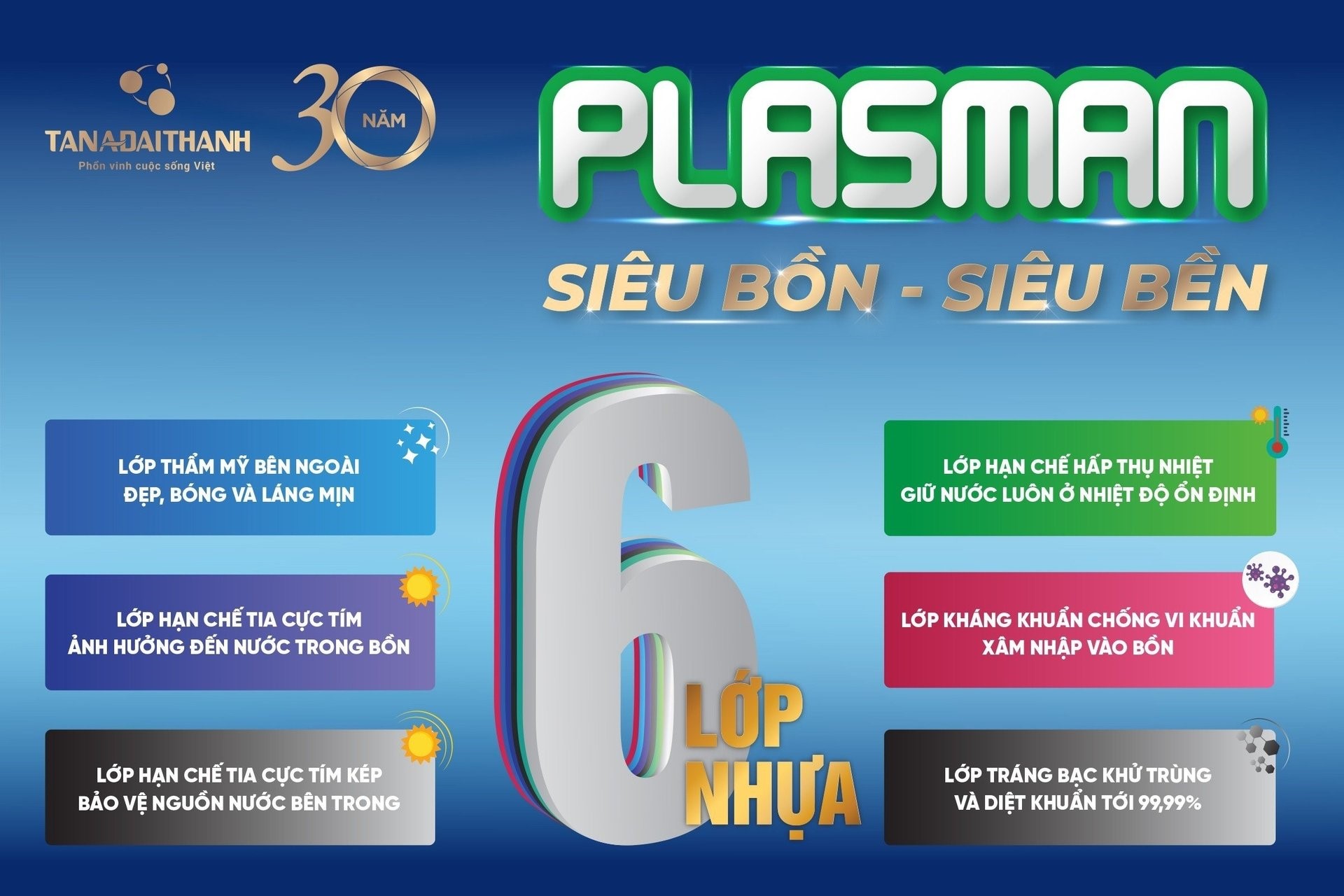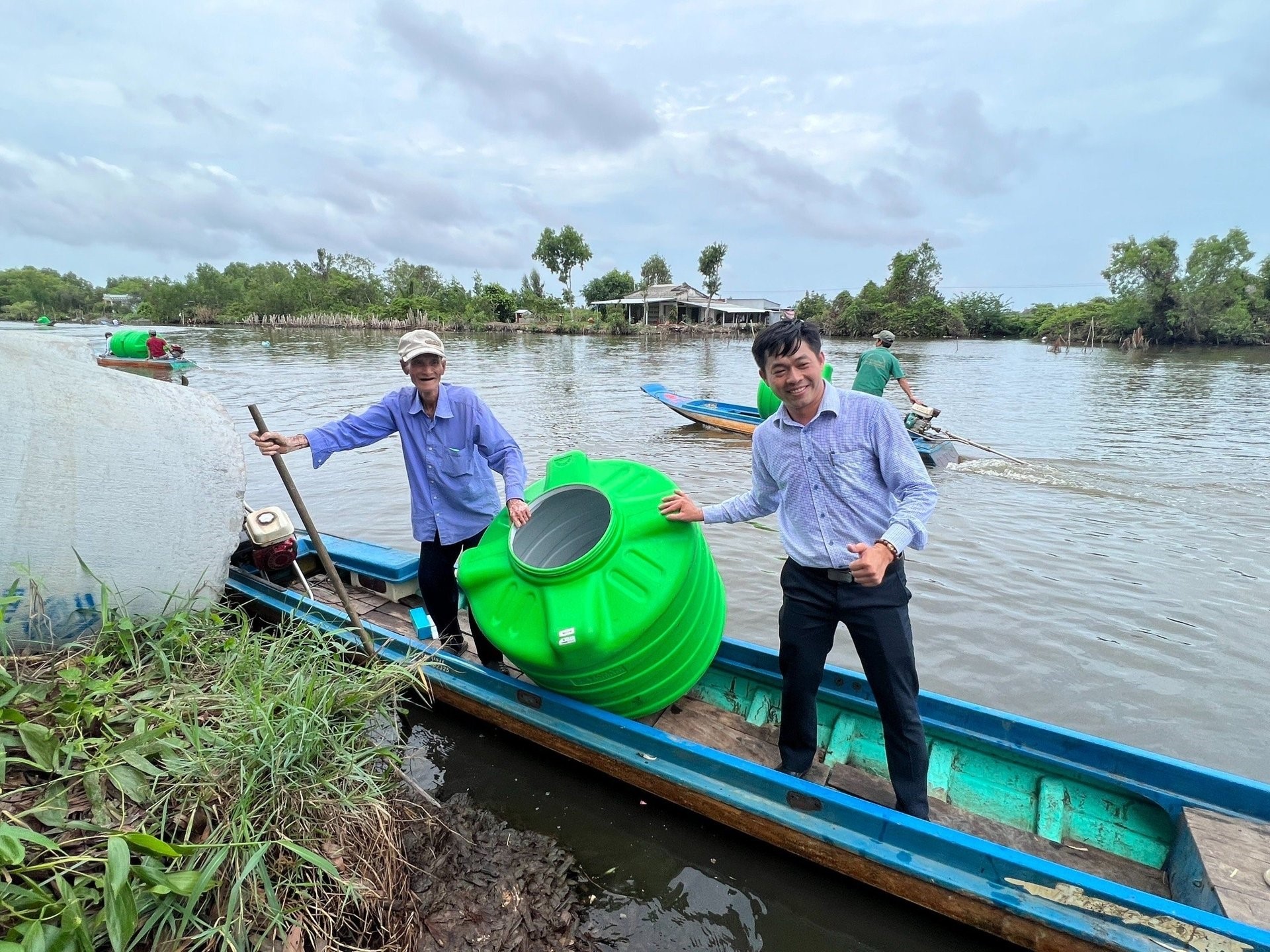November 27, 2025 | 16:06 GMT +7
November 27, 2025 | 16:06 GMT +7
Hotline: 0913.378.918
November 27, 2025 | 16:06 GMT +7
Hotline: 0913.378.918
Methods of "coexisting with" drought and salinity are used more flexibly than ever by people in the Mekong Delta Region.
Since 2017, when Resolution 120 of the Government on "Sustainable Development of the Mekong Delta, Adapting to Climate Change" was implemented, local people have proactively changed their production and living habits to adapt to the increasingly strong impacts of climate change in each dry season.
In agriculture, that adaptive thinking is demonstrated through three shifts, including changing the seasonal calendar to avoid drought and salinity; using varieties that adapt to drought and salinity; and boldly converting to crops and livestock that are more economically efficient than rice to meet market demand.

People use the Tan A Dai Thanh Plasman tank to store water, ensuring hygiene and a larger amount of stored rainwater.
The Mekong Delta has appeared in many good models, such as rice-shrimp in Bac Lieu and Soc Trang, a clean shrimp farming model under the forest canopy in Ca Mau, coconut trees adapting to climate change in Ben Tre, and adaptive livelihood models on coastal growing land in Tra Vinh, etc.
Not only in production, people's lives have also changed to “coexist with” drought and salinity. Observations and forecasts of drought and salinity levels help people proactively store clean water at the beginning of the rainy season.
Instead of the traditional method of storing rainwater in jars, cement tanks, etc., which have a small capacity and do not ensure hygiene, people have invested in plastic tanks with a capacity of 1-2 m3 of water, ensuring enough clean water for 4-5 months of the dry season.
One of the solutions that is assessed as effective, direct, and immediately implementable is to store water properly and use domestic water economically and effectively during peak periods of drought and salinity.
In the water tank market, Tan A Dai Thanh Plasman Super Tank is one of the new products, meeting the strict requirements for tank quality for the Mekong Delta region with sereve alum contamination and salinity.

Tan A Dai Thanh Plasman super tank has many outstanding advantages.
The Tan A Dai Thanh Plasman super tank is manufactured 100% from HDPE virgin plastic, the plastic that ranks at the top in terms of durability, impact resistance, corrosion resistance, and oxidation. The manufacturer has applied two of today’s most advanced technologies, including mixing and sticking lines used to create a tank body with a 6-layer plastic structure and an automatic integral blow molding system with a super-large dimension. Therefore, the Tan A Dai Thanh Plasman super tank is very durable, with anti-light penetration and no risk of leakage, so it is very safe to store domestic water.

Tan A Dai Thanh Plasman super tank is one of the pioneering plastic tank lines with 6 layers of super durable plastic.
The durability of the Tan A Dai Thanh Plasman super tank has been tested and certified since 2019, when it set a record for falling from a height of 26 meters without breaking. Up until now, no plastic tank product on the market has surpassed this record. Plasman super tanks are warranted for 20 years by Tan A Dai Thanh Group as a commitment to the exceptional durability and duration of this product.

Representatives of Tan A Dai Thanh Group donated Plasman super tanks to people in the Mekong Delta.
With outstanding and distinct advantages compared to conventional plastic tank products on the market, Plasman super tanks are gradually becoming popular and are preferred by people, especially people in islands, coastal areas, and areas contaminated with alum and salinity. Tan A Dai Thanh Group, with a high sense of responsibility to the community, has also organized many times to donate Plasman super tanks to families in difficult circumstances in provinces heavily affected by drought and salinity like Ben Tre, Soc Trang, Kien Giang, Ca Mau, Bac Lieu, Long An, and Tra Vinh.
Previously, within the framework of the program "Greening the West with Tan A Dai Thanh,” Tan A Dai Thanh Group, in collaboration with Vietnam Agriculture Newspaper, implemented the journey of giving water to people in eight Mekong Delta provinces affected by drought and salinity (Long An, Ben Tre, Vinh Long, Hau Giang, Kien Giang, Soc Trang, Bac Lieu, and Ca Mau). The program started in mid-May 2023 and ended in mid-June 2023. After one month of implementing the program, each province has been donated 30 Dai Thanh Plasman HDPE plastic water tanks with a value of VND 2.5 million/tank.
Translated by Huyen Vu Thu
/2025/11/26/4909-2-154329_878.jpg)
(VAN) Pearl grouper farming in HDPE cages not only delivers economic efficiency but also contributes to protecting the environment, creating jobs, and promoting marine-based experiential tourism.

(VAN) The model of making a living under the forest canopy through the agroforestry system in Van Son commune, Bac Ninh province, is expected to generate an annual income of approximately VND 30 million/ha.

(VAN) Many enterprises in Can Tho are harnessing natural energy and reducing greenhouse gas emissions in their production processes, thereby contributing to the promotion of a sustainable green transition.
/2025/11/24/3536-2-112800_176.jpg)
(VAN) Dong Nai now has tens of thousands of hectares of forests certified for sustainable management, and this area will continue to be expanded in the coming period.

(VAN) Vinh Ha hamlet (Dai Xuyen commune, Hanoi) is shifting away from small-scale farming as households adopt bioscurity into their breeder chicken models.

(VAN) Heavy rains make aquatic species more vulnerable to disease. Proactive water management and high-tech systems help farmers prevent outbreaks and protect yields.

(VAN) Greenhouses are shifting production mindsets in Binh Lu commune, enabling farmers to ‘weather the sun and rain’ and secure stable vegetable harvests throughout the year.